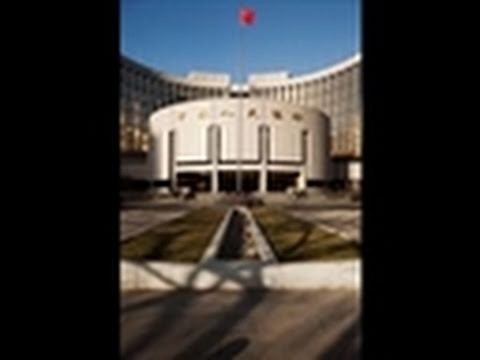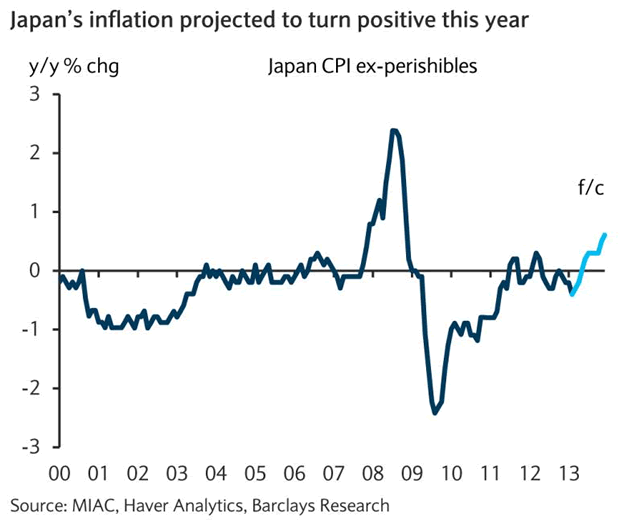China Increases Rates to Counter Highest Inflation in Two Years Bloomberg Business
Post on: 28 Апрель, 2015 No Comment

People’s Bank of China governor Zhou Xiaochuan said in Washington on Oct. 10. It may take two years for the inflation rate to fall below 3 percent, from a 22-month high of 3.5 percent in August. Photographer: Joshua Roberts/Bloomberg
Dec. 26 (Bloomberg) — China raised interest rates for the second time since mid-October to counter the fastest inflation in more than two years, and more moves may follow.
The benchmark one-year lending rate will rise by 25 basis points to 5.81 percent and the one-year deposit rate will climb by the same amount to 2.75 percent, effective today, the People’s Bank of China said in a one-sentence statement on its website late yesterday.
Economists surveyed by Bloomberg News earlier this month forecast one percentage point of increases by the end of 2011. Premier Wen Jiabao is seeking to slow gains in property values and consumer prices that are making it harder for families to buy homes and pay for food. Bank lending and a wider-than-forecast November trade surplus have pumped more cash into an economy already awash with money.
“This demonstrates how determined the government is to control inflation,” said Wang Qing, a Hong Kong-based economist with Morgan Stanley. “Interest rates on medium and long-term loans are adjusted by banks at the beginning of every year so by raising rates now, this will have a much greater tightening effect than it would have in January.”
Wang said he expects three more interest-rate adjustments of 25 basis points each in the first half of next year. Ken Peng, an economist at Citigroup Inc. in Hong Kong said yesterday he forecasts increases totaling 100 basis points next year.
Tighter Policies
Today’s interest-rate increase is the first since Chinese leaders on Dec. 3 announced a shift to a “prudent” monetary policy from the “moderately loose” stance adopted to support the economy amid the global financial crisis.
China reported 5.1 percent inflation for November, the highest in 28 months. Also in November, exports reached a record $153.3 billion and the trade surplus exceeded $20 billion for the fifth time in sixth months, indicating a recovery in international trade from the global financial crisis.
The latest rate increase is aimed at reining in inflation expectations and narrowing the gap between gains in consumer prices and savings rates, Ba Shusong, a researcher at the State Council’s Development Research Center, told state television yesterday after the announcement.
The new benchmark one-year deposit rate of 2.75 percent and the five-year rate of 4.55 percent compare with inflation of 5.1 percent in November.
Concern that the government would increase interest rates to slow expansion in the world’s fastest-growing major economy spurred an 11 percent selloff in the benchmark Shanghai Composite Index of stocks in November. The index jumped 2.9 percent on Dec. 13, the biggest gain in eight weeks, after the central bank ordered lenders to set aside more money as reserves to control liquidity rather than boosting borrowing costs.
‘Prudent Move’
“A rate hike is not normally on the wish-list for Santa Claus, but in China’s case this is a prudent move,” said Brian Jackson, a senior strategist at Royal Bank of Canada in Hong Kong. “It is increasingly clear that using quantitative measures such as the reserve requirement ratio to rein in liquidity and credit hasn’t been enough and adjusting the price of credit is needed to get price pressures under control.”
China is tightening after a record expansion of credit to counter the effects of the world financial crisis. The broadest measure of money supply, M2, has surged by 55 percent over the past two years and outstanding yuan-denominated loans have climbed 60 percent to 47.4 trillion yuan.
Lags Asian Increases
The country is lagging behind counterparts across Asia that took steps earlier to raise borrowing costs from global recession lows. Malaysia boosted its benchmark rate three times, starting in March, Taiwan began in June and South Korea in July. The PBOC last lifted the benchmark one-year lending and deposit rates on Oct. 19, the first increase since 2007.
The government is taking a “very prudent approach” to boosting interest rates because of an unstable and rapidly changing global environment, central bank Governor Zhou Xiaochuan was cited as saying by the official China Daily on Dec. 17. Yesterday’s announcement may indicate that policy makers now regard curbing inflation a more pressing task as price increases extend beyond seasonal fluctuations in food.
Residence-related costs, including charges for water, electricity and rent, jumped 5.8 percent last month from a year earlier, the most in more than two years, and consumer goods prices rose 5.9 percent, the biggest gain since August 2008, according to statistics bureau data.
‘Long-term Battle’
China raised gasoline and diesel prices by as much as 4 percent on Dec. 22 to reflect higher global costs of oil. Still, the increase was less than half of the gain in crude prices over the previous month and the nation’s planning agency said it limited the rise because of the “rapid increase in overall prices.”
The nation must prepare for a “long-term battle” against price increases, Peng Sen, vice chairman of the National Development and Reform Commission, told state television on Dec. 21. The root causes of inflation have yet to be resolved, he said, citing domestic supply shortages, gains in global commodity prices and excessive liquidity.
Inflation is likely to reach 3.3 percent for the whole of this year, breaching the government’s target of 3 percent, Peng said. The commission raised its expectation of average gains in consumer prices next year to 4 percent, state television reported on Dec. 14.

‘Relatively High’ Inflation
Consumer price increases may accelerate to more than 6 percent in coming months, Ben Simpfendorfer, a Hong Kong-based economist at Royal Bank of Scotland Plc, said in a Dec 11 note. Inflation will remain “relatively high” in the first half of next year, especially the first quarter, as the impact of rising costs in October and November feeds through to the data, the NDRC said on Dec. 11.
The government has been reluctant to raise interest rates, preferring to increase the amount of deposits banks must set aside as reserves to curb liquidity that’s fueling gains in food and asset prices. The People’s Bank of China has increased the reserve ratio six times this year, including three times since November.
Policy makers are concerned that raising interest rates could “encourage hot money inflows,” Paul Cavey, a Hong Kong-based economist at Macquarie Securities Ltd. said. “Raising interest rates has far more implications” than ordering lenders to set aside more of their deposits as reserves, as it may affect the ability of local governments and companies to pay their debts.
Hot Money
State Council researcher Ba Shusong told state television yesterday that the government will step up regulation of capital inflows, without specifying measures that will be taken.
The nation’s foreign-exchange regulator this month published a list of companies involved in illegal currency deals including the use of fake contracts as part of its crackdown on hot money inflows, the official Xinhua news agency reported on Dec. 10.
The Ministry of Commerce is stepping up supervision of foreign investment in real estate to crack down on speculation after a 48 percent jump in overseas fund inflows to the industry in the first 11 months of the year, spokesman Yao Jian said on Dec. 15.
Policy makers may also allow faster gains in the yuan to help curb inflation from higher prices of imported commodities, according to analysts’ forecasts. The currency, which has risen 2.85 percent since the central bank dropped its dollar peg in June as the economy rebounded from the financial crisis, can strengthen at a faster pace if gains are “controllable,” Li Daokui, a central bank adviser, said in a Dec. 3 interview.
The yuan closed 0.2 percent higher against the dollar on Dec. 24 at 6.6320.
To contact the Bloomberg News staff on this story: Li Yanping in Beijing at yli16@bloomberg.net
To contact the editor responsible for this story: Chris Anstey at canstey@bloomberg.net














